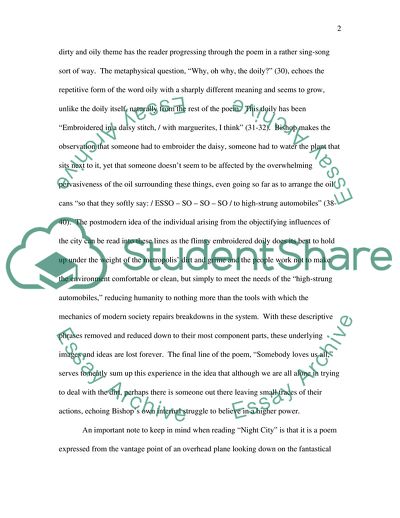American Poetry: Elizabeth Bishop Essay Example | Topics and Well Written Essays - 1750 words. https://studentshare.org/literature/1706360-lit
American Poetry: Elizabeth Bishop Essay Example | Topics and Well Written Essays - 1750 Words. https://studentshare.org/literature/1706360-lit.


